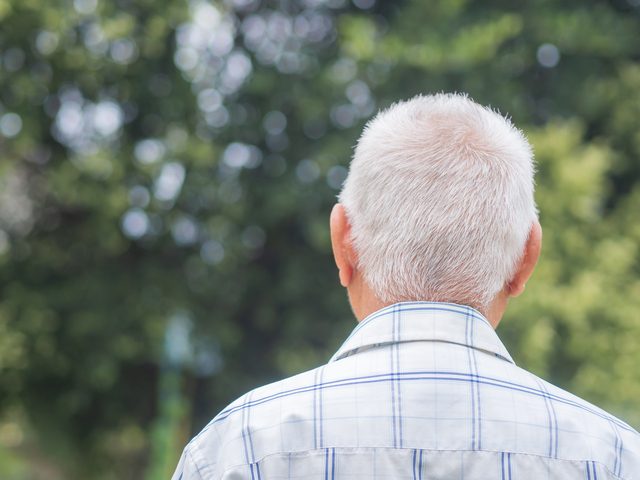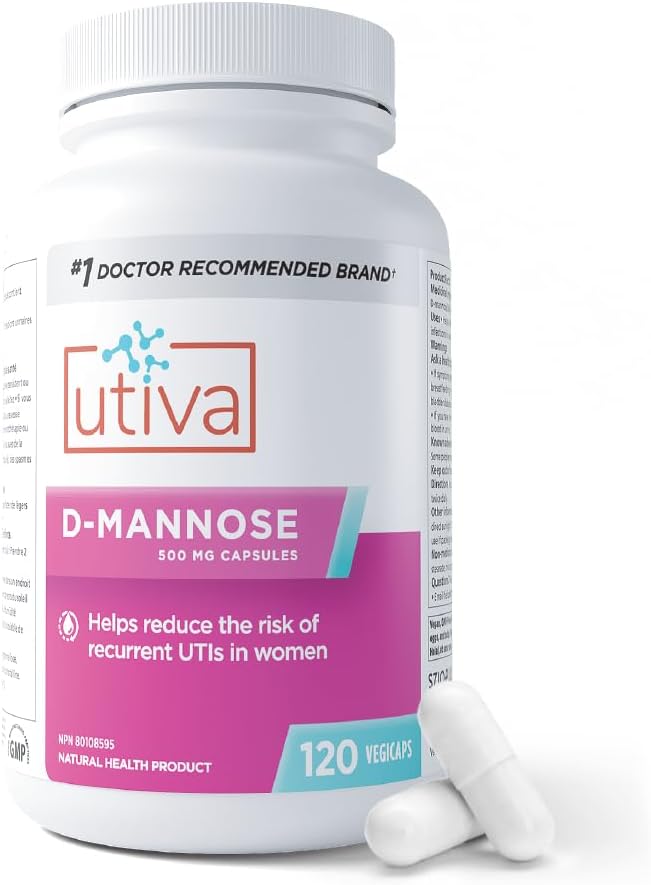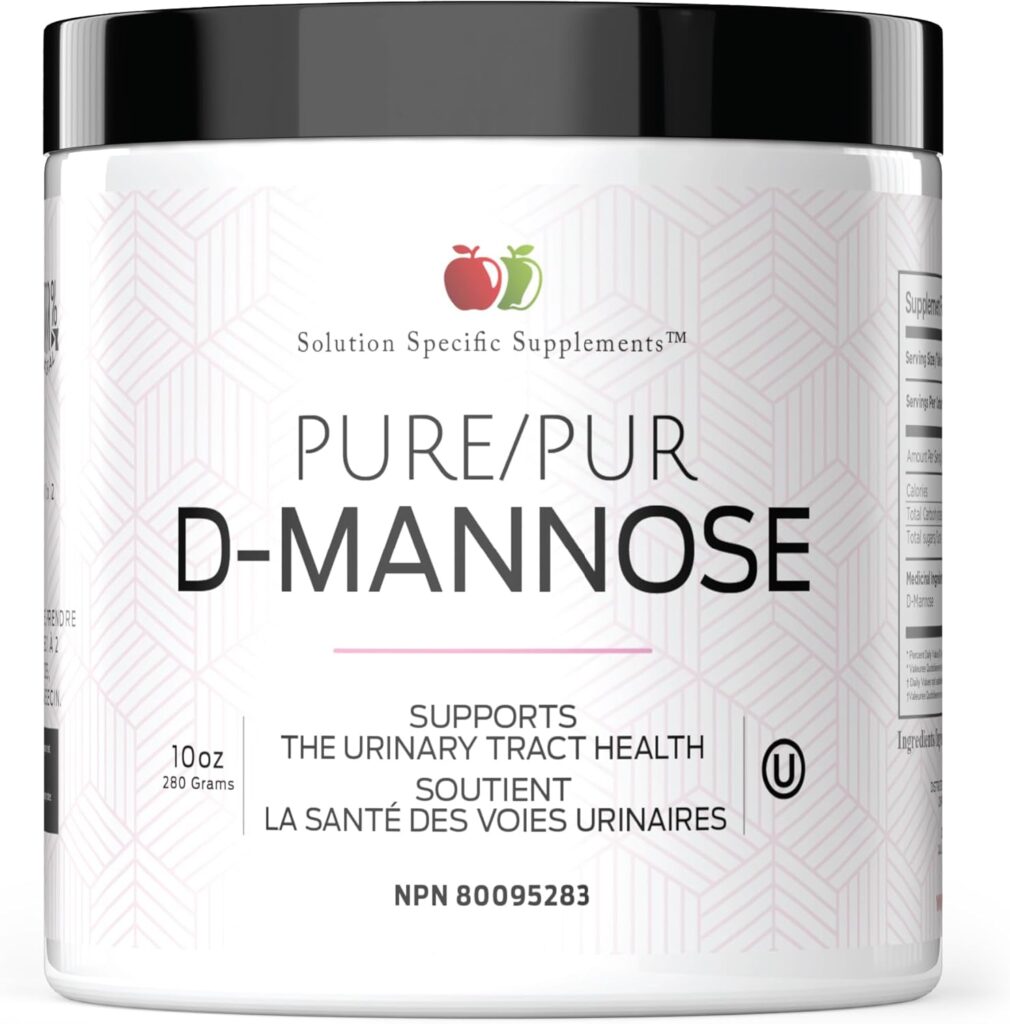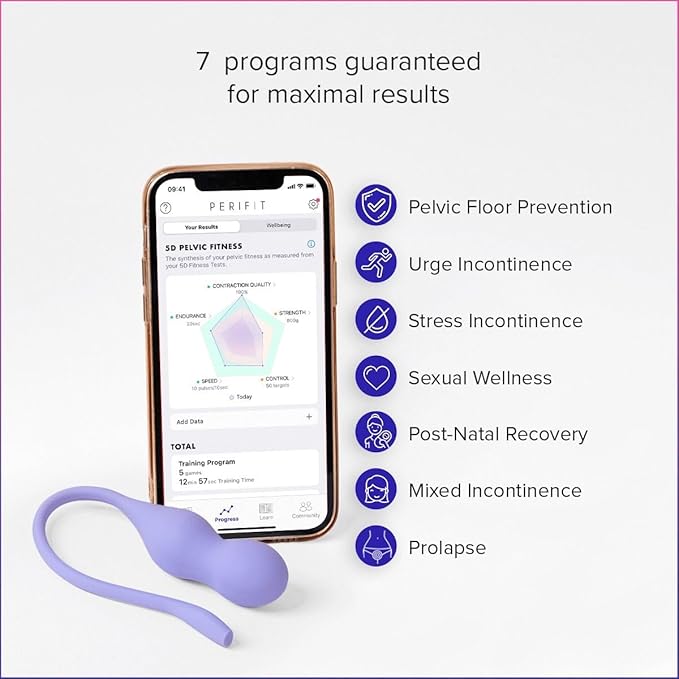Learn the hidden dangers of aging and bladder problems, their causes, and practical tips to manage bladder health for a more confident and active senior lifestyle.
Let’s face it—getting older comes with its fair share of surprises. One of those surprises? Changes in bladder health. For many seniors, aging and bladder problems become an unavoidable reality.
It’s not a fun topic to discuss, but ignoring it can lead to significant challenges. From frequent trips to the bathroom to embarrassing leaks, these effects of aging on the bladder can impact your confidence, sleep, and overall quality of life.
In this article, we’ll uncover the hidden dangers of bladder problems in older adults, explore common causes, and share practical tips to keep your bladder—and your dignity—in check.
Understanding Aging and Bladder Problems
As we age, our bodies naturally change, and that includes the bladder. But why does this happen? For starters, the muscles in the bladder and pelvic floor can weaken, making it harder to control urination.
Add in hormonal changes, chronic conditions, and certain medications, and you’ve got a recipe for potential issues.
Effects of Aging on the Bladder
Some common bladder problems and bladder control issues in seniors are listed below. Always discuss any issues you may have with your healthcare provider
- Urinary Incontinence – The unintentional loss of urine, ranging from occasional leaks to severe inability to control urination.
- Overactive Bladder (OAB) – Frequent and urgent need to urinate, sometimes accompanied by incontinence.
- Urinary Retention – Difficulty emptying the bladder completely, leading to discomfort and a risk of infections.
- Nocturia – Waking up multiple times during the night to urinate, disrupting sleep.
- Bladder Prolapse – When the bladder drops from its normal position due to weakened pelvic muscles, causing urinary issues.
- Urinary Tract Infections (UTIs) – Infections in the urinary system, which are more common and harder to detect in seniors.
- Interstitial Cystitis (IC) – Chronic bladder pain and frequent urination without an infection.
- Bladder Stones – Hard mineral deposits that form in the bladder and can cause pain, infection, or obstruction.
- Neurogenic Bladder – Bladder dysfunction caused by nerve damage, often linked to conditions like Parkinson’s or diabetes.
- Functional Incontinence – Difficulty reaching the bathroom in time due to mobility or cognitive issues, not directly caused by bladder dysfunction.
Hidden Dangers You Need to Know
Increased Risk of Infections
A weaker bladder can increase the risk of bladder infection symptoms in elderly adults. Urinary Tract Infections (UTIs) can become more frequent and harder to detect as symptoms may be mistaken for normal aging.
Left untreated, these infections can lead to kidney damage. There are supplements that can help with flushing of the bladder and urinary tract.
There are also natural cures for an overactive bladder you can adopt . Choose what works best for you.
Sleep Disruptions
Frequent nighttime urination, or nocturia, doesn’t just mess with your sleep. It can also increase the risk of falls, especially if your home isn’t set up for easy nighttime navigation.
Emotional and Social Impact
Managing bladder leaks can feel isolating. Many seniors shy away from social activities, fearing embarrassment. Over time, this can lead to loneliness, anxiety, and even depression.
Chronic Health Complications
Bladder problems do not just stop at the bathroom. Conditions like diabetes and prostate issues often go hand-in-hand with bladder problems.
These create a complex web of health challenges which can worsen symptoms and complicate treatment.
Diabetes, for instance, can damage the nerves that control the bladder, leading to urinary retention symptoms or leaks.
Similarly, prostate enlargement in men can block the flow of urine, causing frequent trips to the bathroom or incomplete emptying.
Addressing these underlying conditions is critical for managing bladder health effectively.
Left unchecked, these complications can create a cycle of worsening health issues, impacting overall well-being.
Practical Tips to Manage Bladder Health
Now for the good news: there are plenty of ways to take charge of your bladder health! Here are some tried-and-true tips:
Strengthen Your Pelvic Floor
Your pelvic floor muscles play a key role in bladder control, and strengthening them can greatly reduce leaks and urgency. Exercises like kegels can work wonders.
They are easy to do and can help reduce stress incontinence management by strengthening the muscles that control urination.
Kegel exercises, where you squeeze and hold the muscles used to stop urine flow, are a simple and effective way to build strength. Aim to do 3 sets of 10 repetitions daily. For best results, practice while sitting, standing, and lying down.
If you’re unsure about your technique, consult a physical therapist specializing in pelvic floor therapy. Over time, these exercises can improve bladder support, making daily activities less stressful and more enjoyable.
Because nearly 30% of women perform their Kegel exercises inaccurately and/or in a way that could potentially harm their pelvic floor, you may wish to invest in a Perifit Kegel Trainer.
Perifit is the only connected pelvic floor device that uses a unique patented dual-pressure sensor technology to identify faulty contractions, ensuring that each contraction is as effective as possible.
Adjust Your Diet and Stay Hydrated
What you eat and drink can have a big impact on bladder health. Certain foods and drinks can irritate the bladder.
Avoid caffeine, alcohol, spicy dishes and acidic fruits like oranges, which are common bladder irritation foods. These can over-stimulate the bladder, causing frequent urination or discomfort.
Instead, focus on a diet rich in fiber with bladder-friendly choices: whole grains, leafy greens, and foods rich in magnesium, which may help relax bladder muscles.
Staying hydrated is essential, but it’s all about timing—drink water consistently throughout the day and limit intake a few hours before bedtime to reduce nocturia.
Trying to drink water all at one time (because you forgot) means your kidneys will have to work a lot harder to flush it all out! Use a motivational water bottle instead – fortunately, there are lots to choose from!
| ZOMAKE 32oz Motivational Water Bottle | BUZIO 64 oz Vacuum Insulated Stainless Steel Water Bottle | BRIMMA Fruit Infuser 32 oz Water Bottle | SAHARA SAILOR 32oz MotivationWater Bottle |
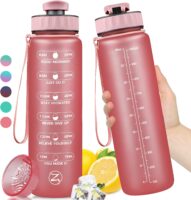 | 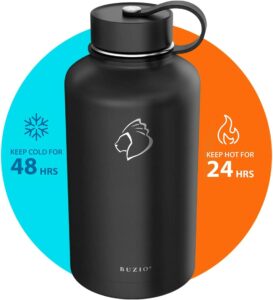 |  | 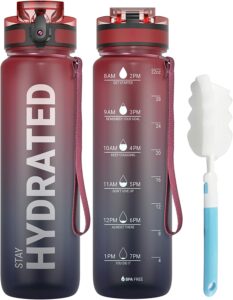 |
Incorporating natural remedies like cranberry or pumpkin seed extracts may also provide additional support for urinary tract health in older adults. Small dietary changes can make a big difference.
Use the Right Products
Don’t let leaks hold you back. Today’s best bladder control products are discreet and effective, from absorbent pads to specialized underwear designed for active seniors.
Stay Active
Low-impact exercises, like walking or swimming, can improve circulation and overall bladder health. Plus, activities like strength training can boost pelvic muscle tone.
Talk to Your Doctor
If you’re dealing with persistent bladder issues, don’t hesitate to reach out. Your doctor can help identify underlying causes and recommend treatments like medications for overactive bladder or physical therapy.
Preventing Senior Aging and Bladder Problems
Prevention is key! Here’s how to reduce your risk:
- Create a Bladder-Friendly Routine: Plan bathroom breaks throughout the day to avoid long stretches of holding it in.
- Stay on Top of Medical Conditions: Conditions like diabetes and heart disease can worsen bladder issues. Manage them with regular check-ups.
- Senior-Friendly Bathroom Modifications: Install grab bars, non-slip mats, and motion-sensor lights to make nighttime trips safer.
- Stay Hydrated Smartly: Too little water can irritate the bladder, but overhydrating late in the day isn’t ideal either. Balance is key.
Conclusion – Aging and Bladder Problems
Aging doesn’t have to mean surrendering to bladder problems. By understanding the hidden dangers, making proactive changes, and seeking help when needed, seniors can maintain both their bladder health and their independence.
Take charge and flush those fears away!
Related Articles
- Discover 6 Alarming Ways Liver and Kidney Health are Linked
- Bladder Problems in Older Men – How To Decrease Risks
- Bladder Problems in Older Women. A Handy Guide
- 30 Natural Ways to Detox Your Liver and Kidneys: A Guide
FAQs About Aging and Bladder Problems
What are related aging and bladder problems?
Bladder problems can result from muscle weakness, hormonal changes, chronic conditions, and medications. Factors like poor hydration and diet also play a role.
Can bladder problems in older adults be prevented?
Yes, many bladder issues can be minimized with a healthy diet, regular exercise, and proactive management of medical conditions.
Are bladder problems a normal part of aging?
While common, bladder issues are not an inevitable part of aging. With proper care, many seniors can maintain good bladder health.
What are the best exercises for bladder control?
Kegel exercises, pelvic floor training, and low-impact activities like yoga can help strengthen bladder muscles.
When should I see a doctor about bladder problems?
If you experience pain, blood in your urine, or frequent infections, consult a healthcare provider immediately.

